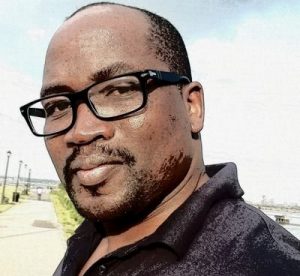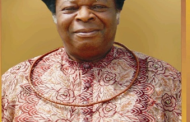New York-based development economist and global policy expert takes off the gloves to give it to the World Bank which is used to being caressed with nice, ‘mature’ statements. The title has been slightly edited, replacing ‘Misreads’ with Misleads’. The author is reachable via kenchesoli@gmail.com.

The author
A recent Report by the World Bank proclaims that global poverty is going to essentially be an African problem. Whereas other regions are eliminating poverty and hunger, the number of Africans living in poverty is rising. There are more poor people in the continent than ever before. (The Report in question is authored by 12 individuals, none of whom is African and which perpetuates the troubling message that, in this age, foreigners continue to tell Africans what to do).
It further observes that Africa’s poverty rate has not only been higher than in other regions; it has also declined more slowly. This awful projection is as much an indictment on Africa’s leadership as it is on the World Bank — a multilateral institution that exists to ostensibly end extreme poverty and promote shared prosperity.
Africa’s dire circumstances reflect a failure of its political and intellectual class to find sustainable paths for economic growth. However, the World Bank is just as complicit and responsible for the engendered poverty across the continent.
The bank maintains a large contingent of highly paid experts and expatriates in all 54 countries who supposedly work with and advise national and local governments on development strategies. Its policies and interventions are evident all over Africa, and this is how it has been since the founding of independent African states.
The bank’s policies are largely responsible for persistent and rising poverty in Africa. In its 2019 report, “Accelerating poverty reduction in Africa”, it wants African governments to pivot their efforts towards family planning and population control.
It deems macroeconomic stability and growth to be critical yet insufficient for reducing poverty and improving well-being. It has also identified food systems, mitigating fragility and addressing poverty financing gap as other priority areas.
Many will find its focus on Africa’s “low” population of 1.3 billion people misplaced. Comparatively speaking, Africa is underpopulated and generously endowed with adequate resources for a healthy and prosperous people.
There are as many Africans as there are Chinese or Indians, yet Africa is 24 times bigger than India and about 10 times bigger than China. The World Bank does not make a big deal about these countries — which are the world’s growth engines, fuelling global trade, development finance, research and innovation.
The study is authored by 12 individuals, none of whom is African. It is troubling that, in this age, foreigners continue to tell Africans what to do. The recommendations reflect “new knowledge” and are likely to inform the bank’s interactions with and activities on the continent.

Kenyan president, Uhuru Kenyatta but is he pointing at the World Bank, leaving four other fingers pointing at him?
Highly destructive
Thirty years ago, in 1989, non-Africans at the bank published another study, “Sub-Saharan Africa; From crisis to sustainable growth”. It called for a long-term development vision for Africa that was both “credible and energising”. While declaring in the pages that “Africa’s future could only be decided by Africans”, the bank imposed its own development priorities on the continent through the Structural Adjustment Programmes (SAPs).
The polices were highly destructive; they accelerated poverty, unemployment and de-industrialisation. Africa lost an entire decade. Ironically, the bank does not acknowledge this misjudgment and continues to intentionally misread Africa’s unique situation. Africans are unbothered with their population; they are focused, instead, on the demographic dividend, continental free trade and healthy competition emerging in global markets of its agricultural products and minerals.
They are aware that an assertive Africa can negotiate fair compensation for its resources, which foreigners continue to steal. It does not matter how well Africa plays; it must always lose, for the rules governing global trade and financial markets are skewed against it. Ending illicit financial flows, which haemorrhage Africa’s critical resources, should, arguably, be a top priority for the bank and anyone interested in seeing a more prosperous Africa.
In 2013, it was estimated that $1.2-1.4 trillion (Sh120-140 trillion) was siphoned from Africa in illicit financial flows between 1980 and 2009. This was roughly equal to its gross domestic product and exceeded, by far, foreign aid, foreign direct investment, and diaspora remittances.
We cannot stop others from theorising our conditions, but we can certainly challenge those who wish to impose their vision and agenda on us. Africa, and indeed, black people, must remember that we live in a highly competitive world.
In his book Destruction of Black Civilization, Chancellor Williams calls for the liberation of the mind of the black people, who find themselves as the lonely face of poverty. Citing the Civil Rights movement in the US and its role in inspiring and fuelling the fight for independence across Africa, Williams suggests that poverty among black people can only end when they unite to demand equality and dignity. This is beyond what the World Bank can offer.




























